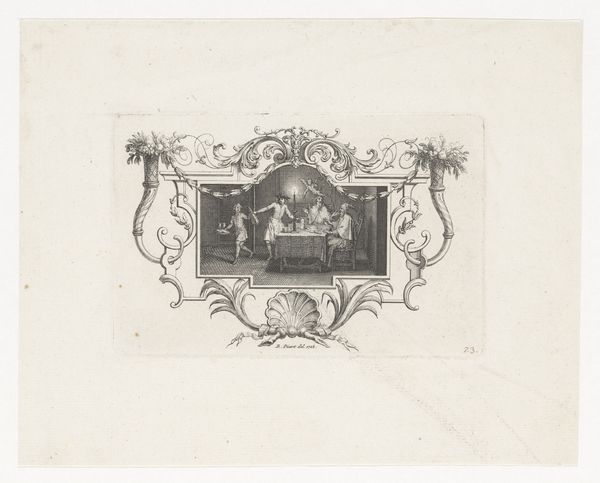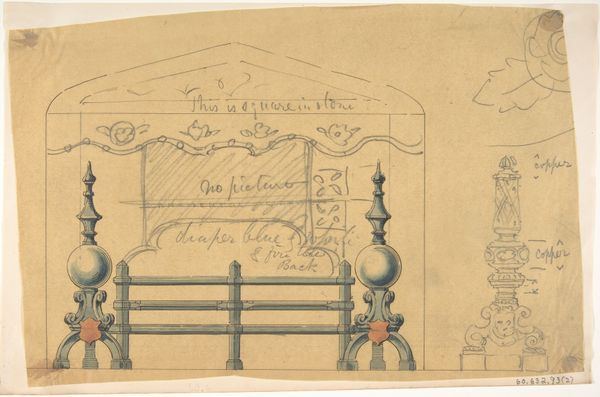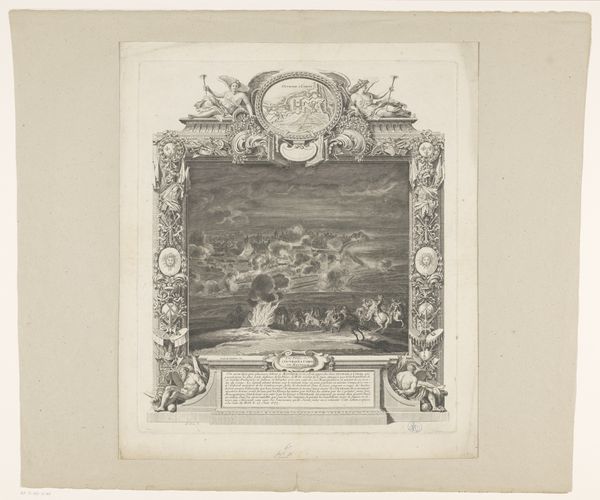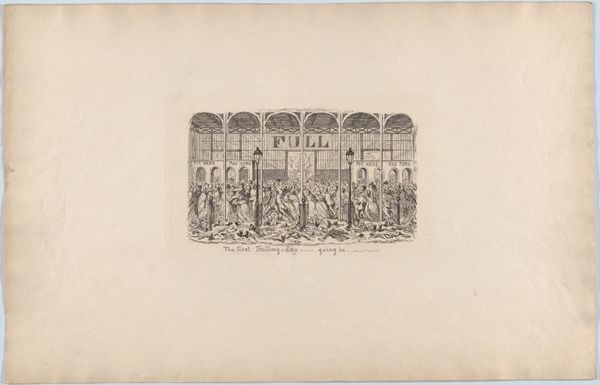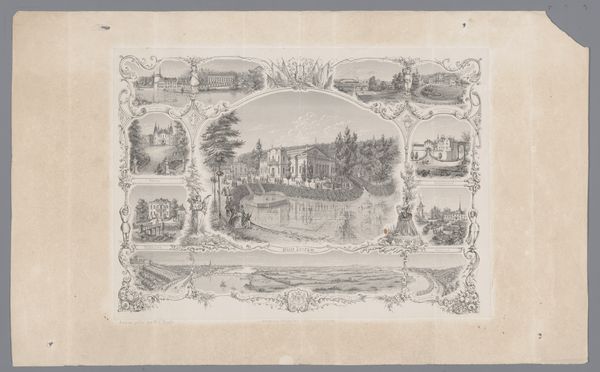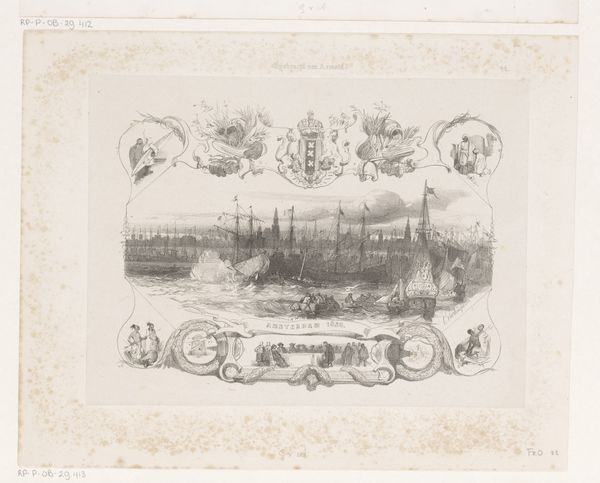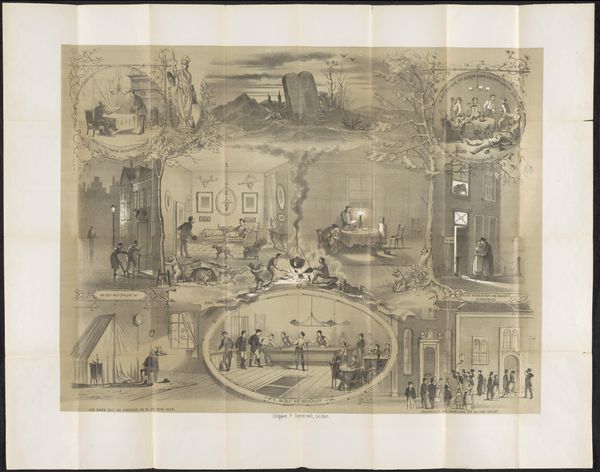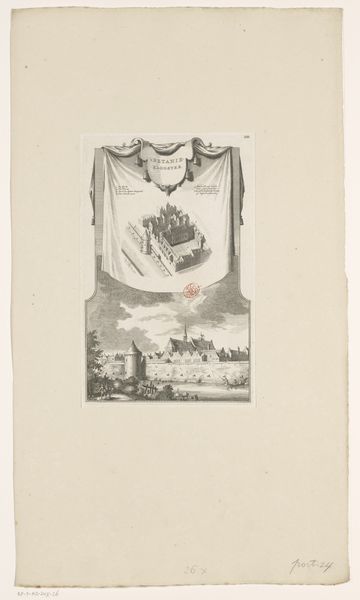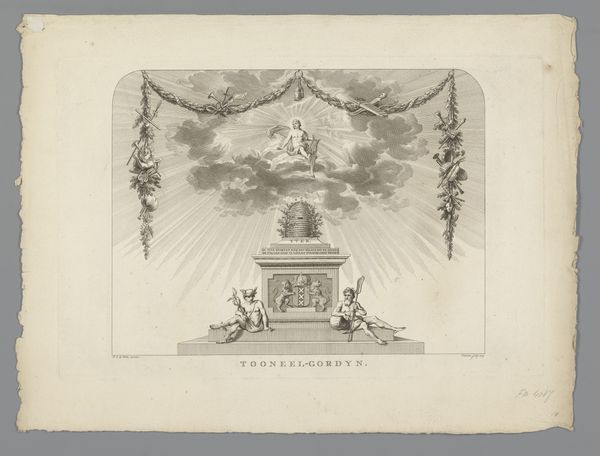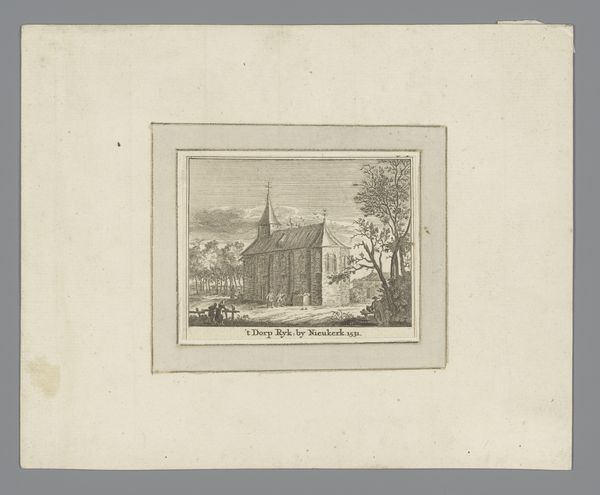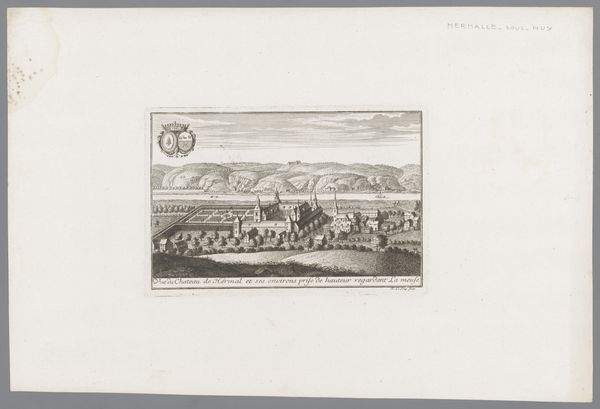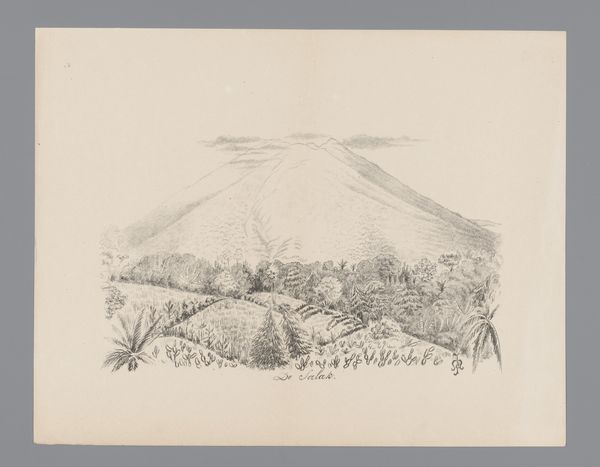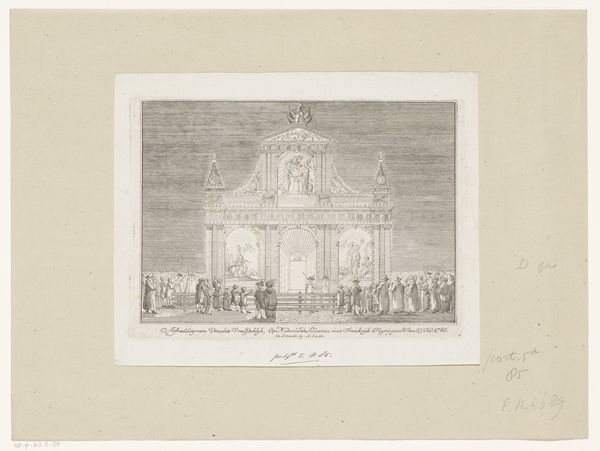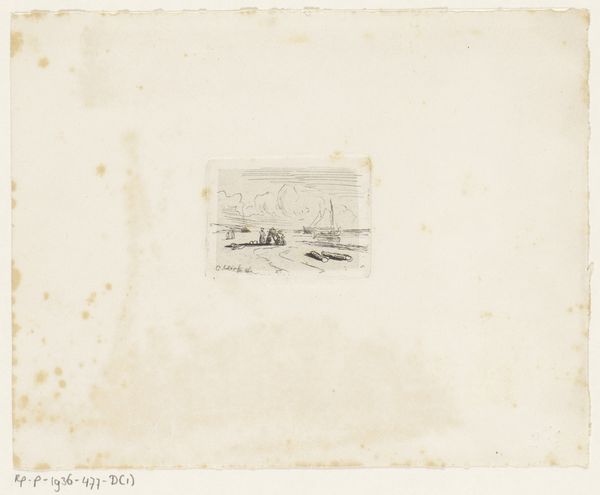
drawing, print, paper, ink, pen
#
portrait
#
drawing
#
aged paper
#
toned paper
#
light pencil work
#
narrative-art
# print
#
sketch book
#
paper
#
personal sketchbook
#
ink
#
sketchwork
#
romanticism
#
pen-ink sketch
#
sketchbook drawing
#
pen
#
genre-painting
#
storyboard and sketchbook work
#
academic-art
#
sketchbook art
#
calligraphy
Dimensions: height 272 mm, width 358 mm, width 714 mm
Copyright: Rijks Museum: Open Domain
Curator: At first glance, this drawing, "Omslag voor: Kleine scènes uit het dagelijks leven," dating back to 1828 and attributed to Henri-Gérard Fontallard, appears rather like an invitation to a forgotten world. What do you make of it? Editor: It whispers of old libraries, doesn't it? Dust motes dancing in shafts of sunlight. The sketch itself is almost a filigree, delicate yet brimming with tiny figures and a sense of untold stories. Curator: Precisely. Fontallard used pen and ink on paper to create this cover illustration. Given that it's meant for a book titled "Small Scenes from Daily Life," it hints at a narrative focus. Editor: A peek into miniature dramas! But look at how the elaborate swirls almost overwhelm the central scene. It's as if the embellishments, those curls and flourishes, are characters themselves in this "daily life" tableau. It speaks of a highly decorative style—do you think it reveals particular social aspirations, almost to the point of caricature? Curator: Good point! In its historical context, Fontallard's piece sits within the Romantic movement, though tinged with Academic art's attention to detail. Print and drawing held unique social positions. The proliferation of prints allowed for the broader distribution of images and ideas and the decoration. Meanwhile, drawings maintained their closeness with craftsmanship. It catered to bourgeois tastes eager to adorn their walls with a signifier of culture and refined sensibilities, perhaps blurring class boundaries to present aspiration. Editor: The sketch, therefore, might be not only depicting daily life, but performing the very aspirations it illustrates. It is a performance of culture. Curator: Exactly. And look closely – the vignettes, the way characters interact…it's almost theatrical. One could analyze it as if each figure is on its own tiny stage within the greater drama of Parisian life. Editor: It's charming, isn’t it? A bit chaotic, maybe, but that perfectly mirrors the flurry of everyday existence. The artist manages to find the specialness in seemingly banal moments, while speaking volumes about a community and its era. Curator: Ultimately, Fontallard invites us to peer through a keyhole into the past, encouraging us to find meaning in the overlooked moments of a prior century. It makes me consider what images, today, capture our daily lives. Editor: For me, it is a tender reminder that history isn't just kings and battles, but shopkeepers and strolling lovers caught forever in the artist's hand.
Comments
No comments
Be the first to comment and join the conversation on the ultimate creative platform.
